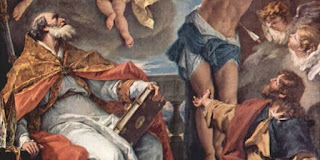Saint Eusebius of Vercelli was a famous bishop and martyr of the early Christian church. Eusebius was born in Sardinia, Italy, around 283 AD. He acquired a thorough education in Rome and eventually converted to Christianity after witnessing the faith and commitment of the early Christians.
Eusebius was appointed Bishop of Vercelli, a city in northern Italy, in 340 AD. He was well-known for his zealous advocacy of true Christianity, notably against the Arian heresy, which rejected Christ's divinity. In 354 AD, Eusebius actively participated in the Council of Milan, when the Arian dispute was severely debated and condemned.
Due to his uncompromising resistance to Arianism, Emperor Constantius II persecuted and exiled Eusebius several times. During his exile, he sought safety in a number of locations, including Egypt and the East.
In 363 AD, Eusebius returned to Vercelli after his final exile. On August 1, 371 AD, he was martyred for his adherence to the orthodox Christian faith.
Furthermore, St. Eusebius of Vercelli is usually regarded as an important defender of true Christianity during a period of theological debates and heresies. He was instrumental in defending Christ's divinity and propagating the Nicene Creed's principles.
Eusebius' strong faith, tenacity, and readiness to face exile and martyrdom have inspired Christians throughout history. He is regarded as a saint by both the Roman Catholic and Eastern Orthodox churches.
Moreover, the life and example of St. Eusebius of Vercelli serve as a reminder of the significance of keeping strong in faith in the face of adversity and hostility. His efforts to the defense of Orthodox Christianity continue to have an influence on Christians today.
Tags:
Feast of the day

